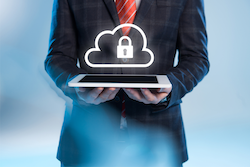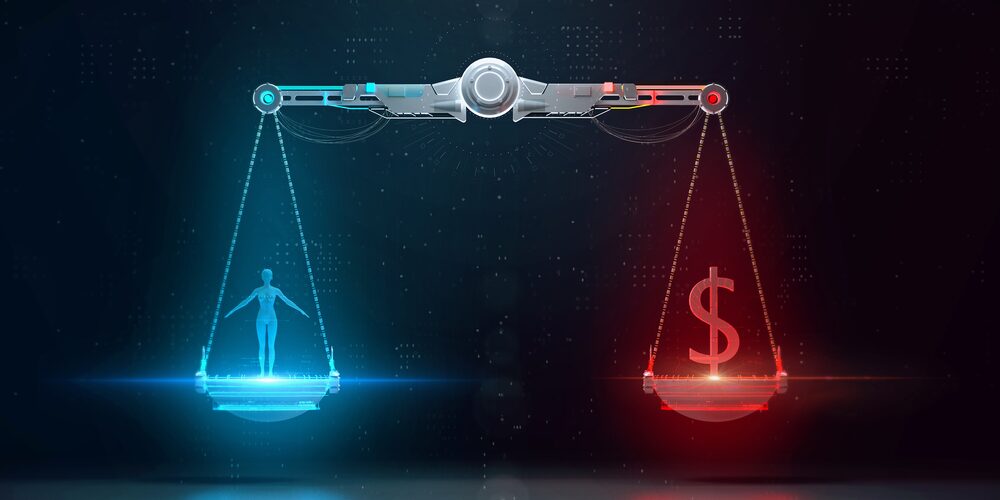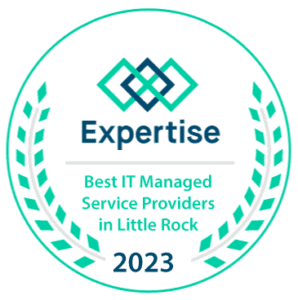Cloud computing continues to grow and become more accessible. What was once reserved for large enterprises is now readily available for small and medium-sized businesses. However, companies need to be aware of the cybersecurity risks associated with cloud environments. Prevention is always better than waiting to respond to a disaster. Consider the primary cloud computing cybersecurity risks and how managed service providers can help you avoid a catastrophe.
Cybersecurity Risk Assessment for Cloud Environments
How Secure Is Cloud Computing?
Cloud-based platforms like Microsoft Azure and Amazon Web Services boast about their cybersecurity. Nevertheless, these platforms are only as secure as their users. A thorough review of cloud cybersecurity best practices in 2020 noted that the most important factor is a company’s cybersecurity maturity and readiness to employ cloud environments securely.
Making matters more complicated is the fact that companies want to use the cloud to consolidate their data and analyze it. Centralized data presents a fantastic target for cybercrime akin to breaking into a vault with a priceless diamond. It should come as no surprise that a recent survey found that nearly 2 out of 5 organizations experienced a data breach in their cloud. How do attackers succeed, and what can you do to prevent these attacks?
Phishing Attacks
Phishing attacks are by far the most common way for attackers to gain access to your data. Phishing works by targeting your company’s associates, typically via email. Attackers create an email that looks almost identical to those that your company sends out with a request to restore their password or update personal information. The email provides a link which actually sends the associate’s information to the attackers.
With one of your associate’s credentials in hand, attackers can simply log into your system and have the same level of access as that individual. However, you can use additional authentication methods to deter these attacks. For example, two-factor authentication (2FA) requires users to confirm their login on a personal device. Alternatively, some companies opt for physical USB keys or RSA tokens to confirm logins securely.
Cloud Data Loss
One of the disadvantages of centralizing your data is that it could lead to major data loss in the event of a disaster. Fortunately, most cloud platforms distribute your data across many data centers and perform their own backups to minimize potential data loss. Nevertheless, you should protect your data properly. Never assume that a cloud service provider will be able to restore your data perfectly. Perform regular data backups to a secure location.
A cloud computing environment should likewise be backed up entirely to ensure that you can reactivate your system in the event of a technical error or data loss. To best determine how often to back up your environment, discuss your company’s needs with technology experts.
Local Network Infiltration
The cloud has made it possible to collect data from more sources. In particular, Internet of Things (IoT) devices allow you to turn virtually any device into a smart one that can be controlled automatically. This is extremely useful for industrial companies that want to track data about their machines’ production, for example. IoT devices can give you a significant technological advantage; however, these devices may not be well secured out of the box.
Without proper configuration, IoT devices could turn into backdoors for attackers to gain access to your network. It’s important to ensure that you have taken the right cybersecurity precautions when incorporating IoT into your cloud environment.
How Managed Service Providers Bolster Cloud Security
IT Managed service providers (MSPs) give you a team of IT experts to help you manage all of your IT needs. Rather than building an expensive in-house IT team, you can offload many of your IT tasks to an MSP. MSPs can run your IT help desk, troubleshoot issues remotely, and help you plan your IT spending strategically. With regard to cybersecurity in the cloud, MSPs can use modern tools to protect your business from data breaches.
Furthermore, when you work with a local MSP, you can get customized service that delivers solutions tailored to your business. MSPs can even work with your associates to improve your company’s cyber readiness and mitigate the risk of associate error leading to a fatal attack. Consider a few of the methods MSPs can use to bolster your cybersecurity.
Constant Monitoring
One of the most effective cybersecurity strategies is to use 24/7 monitoring software on your network and file system. Unlike older cybersecurity tools that mostly focused on detecting malicious code, these modern software solutions monitor network activity and file usage. They record your users’ activity to determine regular patterns of behavior, which allows the software to spot irregularities.
Suspicious file movement, excessive network activity at odd hours, or access from abnormal locations can serve as triggers. You can personalize how the software responds. You could configure it to shut down activity, remove the offending user, or simply alert your managed services provider to investigate further.
Data Backup Management
MSPs can help you develop a customized backup solution to avoid data loss and improve recovery time in the event of a problem. The more often you back up your data, the less you lose in the event of an issue. However, more frequent backups may raise cloud storage costs. The time to restoration is also vital to determine, as the longer your systems are down, the more money you stand to lose.
With expert advice, you can find the right backup balance for your company. Your MSP can handle all of your backups and restoration operations.
Training Your Associates
Individuals are often the weakest link in the cybersecurity chain. We believe that an MSP should be a strategic partner committed to the success of your company. To build that strategic partnership, it’s important for our IT experts to work together with your associates to build your cybersecurity capacity and readiness. Proper training is vital. For example, we’ve developed cybersecurity “escape rooms” to teach your team to deal with potential threats and respond appropriately if a real one arises.
Is your company’s cloud as secure as it could be? Contact Edafio to schedule a meeting with one of our IT experts and discuss a cybersecurity risk assessment.








